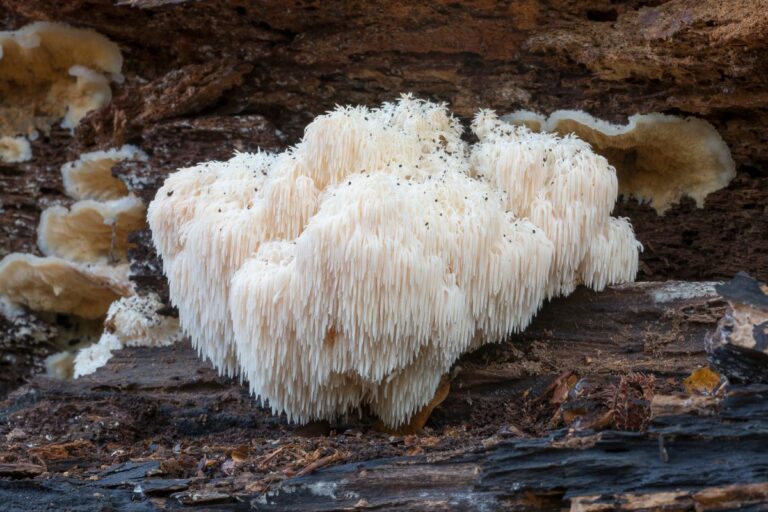Best Mushrooms for Health: A Comprehensive Guide to Nutritional Benefits
Table of Contents
Mushrooms have long been recognized for their numerous health benefits and unique taste. These versatile fungi are packed with essential nutrients, making them an ideal addition to any healthy diet. Among the vast array of mushroom varieties, certain types stand out for their exceptional nutritional and therapeutic properties, earning them a place in the list of best mushrooms for health.
Polysaccharides found in certain mushrooms are known for their antitumor and immunomodulating properties, enhancing overall immune system function and promoting a healthy lifestyle. In addition to these, mushrooms also contain vital nutrients such as vitamins, minerals and antioxidants that contribute to their health benefits. When incorporated into your regular diet, these health-promoting mushrooms can provide a nutritious boost and support your well-being.
Several types of mushrooms, such as shiitake, maitake, and reishi have been extensively studied for their medicinal uses and health benefits. From supporting heart health to promoting a strong immune system, these powerful mushrooms have a lot to offer. By including these mushrooms in your diet, you can enjoy their unique flavors while also taking advantage of their impressive health-promoting properties.
The Health Benefits of Mushrooms
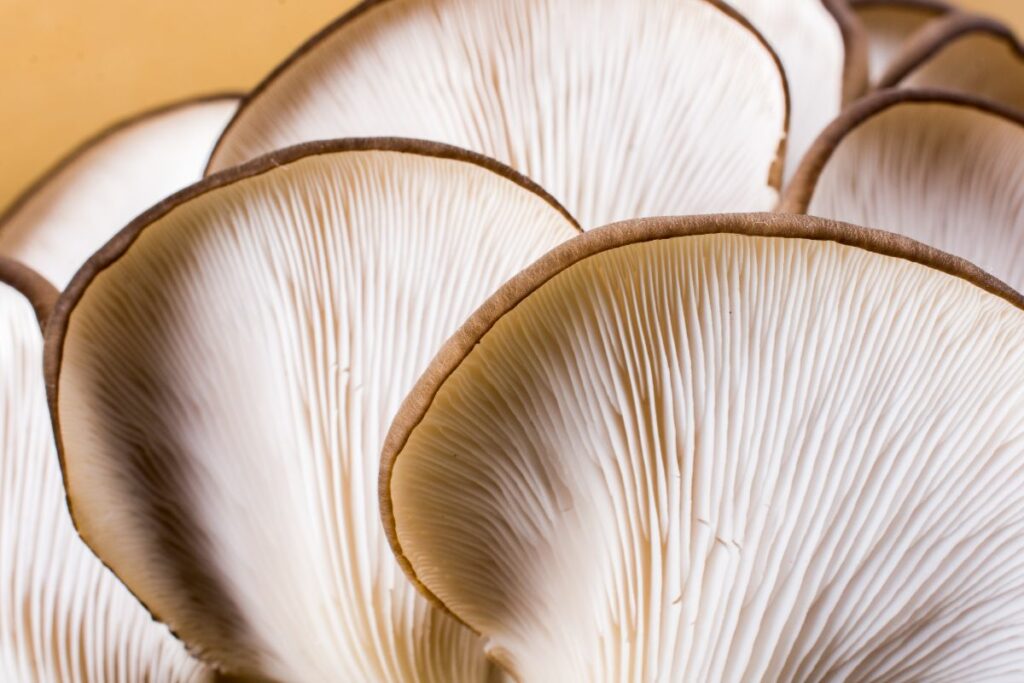
Mushrooms have been known for their medicinal properties and nutritional benefits for centuries. They are a rich source of essential nutrients, antioxidants, and bioactive compounds that provide various health benefits. In this section, we will discuss the most relevant health benefits that mushrooms offer.
Boosting Immune System
Mushrooms are natural immune system enhancers, containing essential vitamins and minerals that help support proper immune function. They are rich in antioxidants, such as ergothioneine and selenium, which protect cells from damage caused by free radicals. Some types of mushrooms, like shiitake and maitake, contain beta-glucans, a type of fiber that stimulates the immune system and helps to fight infections.
Heart Health
Mushrooms contribute towards heart health by promoting blood circulation and helping reduce inflammation in blood vessels. They are packed with potassium, an essential mineral that aids in maintaining normal blood pressure levels, and they also contain fiber, which can help lower cholesterol levels. Moreover, mushrooms are low in saturated fat and contain compounds that reduce the production of compounds that promote blood clotting, further lowering the risk of heart disease.
Aiding Weight Loss
The relatively low-calorie content of mushrooms, coupled with their high fiber content, makes them an excellent choice for those looking to lose weight. Fiber aids in digestion and helps maintain healthy bowel movements while also providing a feeling of fullness. This can lead to reduced overall calorie intake, which supports weight loss efforts. In addition, mushrooms are a good source of protein, an essential nutrient for building and maintaining muscle mass.
Fighting Cancer
Mushrooms contain various cancer-fighting compounds, such as polysaccharides, lectins, and terpenoids, which exhibit anti-tumor properties. These compounds target different stages of cancer progression and can inhibit cell proliferation, reduce inflammation, and stimulate the immune response. Some mushrooms, like the reishi mushroom, have been specifically studied for their anti-cancer potential.
Improving Mental Health
Mushrooms can support mental health through their high concentration of essential nutrients that are vital to proper brain functioning. They contain various B vitamins, such as niacin, riboflavin, and pantothenic acid, which are crucial for maintaining a healthy nervous system. In addition, mushrooms are rich in ergothioneine, an antioxidant that can protect brain cells from oxidative damage, reducing the risk of neurodegenerative diseases such as Alzheimer’s and Parkinson’s disease. Furthermore, some mushrooms, like lion’s mane, have been shown to boost cognitive function and promote nerve cell regeneration.
In conclusion, incorporating mushrooms into one’s diet can provide numerous health benefits, ranging from immune system support and heart health to weight loss and cancer prevention. Their nutrient-rich profile and bioactive compounds make them a valuable addition to any meal plan.
Key Nutritional Values in Mushrooms
| Nutrient | Amount per 100g |
|---|---|
| Calories | 22 kcal |
| Protein | 3.1 g |
| Carbohydrates | 3.3 g |
| Dietary Fiber | 1.0 g |
| Fat | 0.3 g |
| Vitamins & Minerals | |
| Vitamin D | Varies (usually a good source) |
| Vitamin B2 (Riboflavin) | 0.4 mg |
| Vitamin B3 (Niacin) | 3.7 mg |
| Vitamin B5 (Pantothenic Acid) | 1.5 mg |
| Vitamin B6 (Pyridoxine) | 0.1 mg |
| Folate (Vitamin B9) | 16 µg |
| Iron | 0.5 mg |
| Phosphorus | 120 mg |
| Potassium | 318 mg |
| Selenium | 5.7 µg |
| Copper | 0.3 mg |
| Zinc | 0.5 mg |
Vitamins and Minerals
Mushrooms are an excellent source of various essential vitamins and minerals. They are particularly rich in selenium, which is a powerful antioxidant that helps protect the body from oxidative stress and supports a healthy immune system. Vitamin D is another vital component found in mushrooms, especially when exposed to sunlight. This nutrient supports bone health and aids in calcium absorption. B vitamins, such as riboflavin, niacin, and pantothenic acid, are also abundant in mushrooms, which play a crucial role in maintaining healthy energy levels and brain function. Additionally, mushrooms provide significant amounts of potassium, iron, copper, and zinc, contributing to overall health and wellness1.
Protein and Fiber
Mushrooms not only offer essential vitamins and minerals but also contain a reasonable amount of protein and dietary fiber. While not as high in protein as animal sources, mushrooms still provide a valuable plant-based option for those looking to diversify their protein intake. Dietary fiber, on the other hand, promotes healthy digestion, supports heart health, and helps maintain blood sugar levels2. With their unique blend of essential nutrients, mushrooms make an excellent addition to any diet.
Low Caloric Content
Despite their high nutritional content, mushrooms are remarkably low in calories. They are naturally low in fat and contain minimal carbohydrates, making them an attractive choice for those looking to maintain or lose weight. Moreover, their high water content and fiber can help promote satiety, reducing the overall caloric intake during a meal3. With their low caloric content and ample health benefits, mushrooms are a versatile and nutritious food to include in any diet.
Types of Healthy Mushrooms
Shiitake Mushrooms
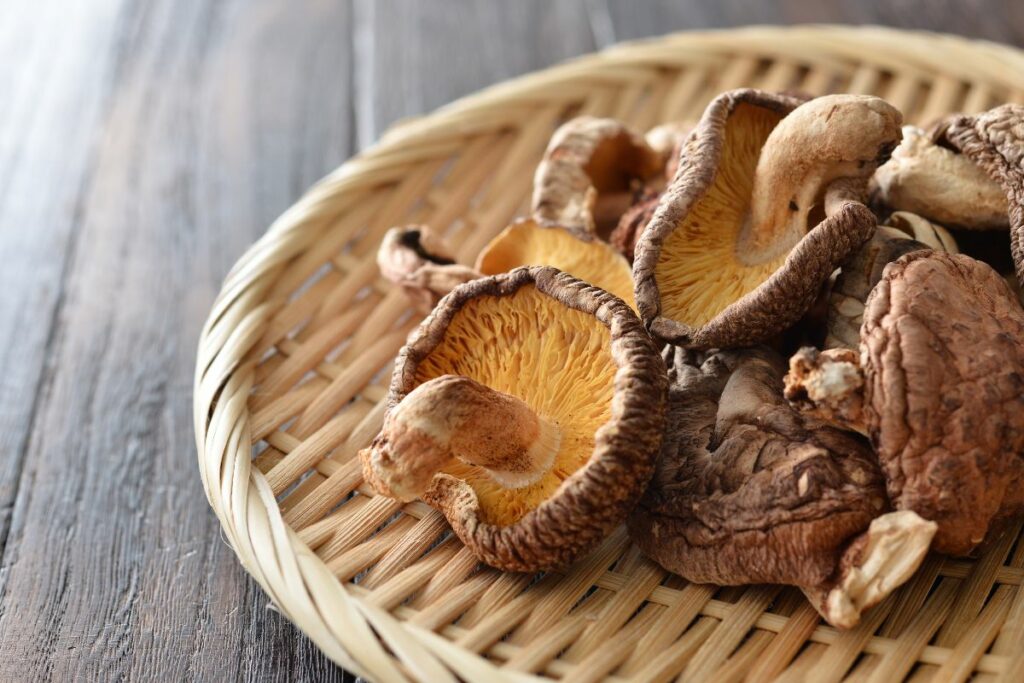
Shiitake mushrooms are known for their rich and savory flavor, making them a popular choice for culinary dishes. They are also rich in several essential nutrients such as vitamin C, niacin, provitamin D, and minerals like selenium, copper, and zinc. Shiitake mushrooms are believed to support immune health and cardiovascular health, as well as have potential anticancer properties due to compounds like eritadenine and lentinan1.
Maitake Mushrooms
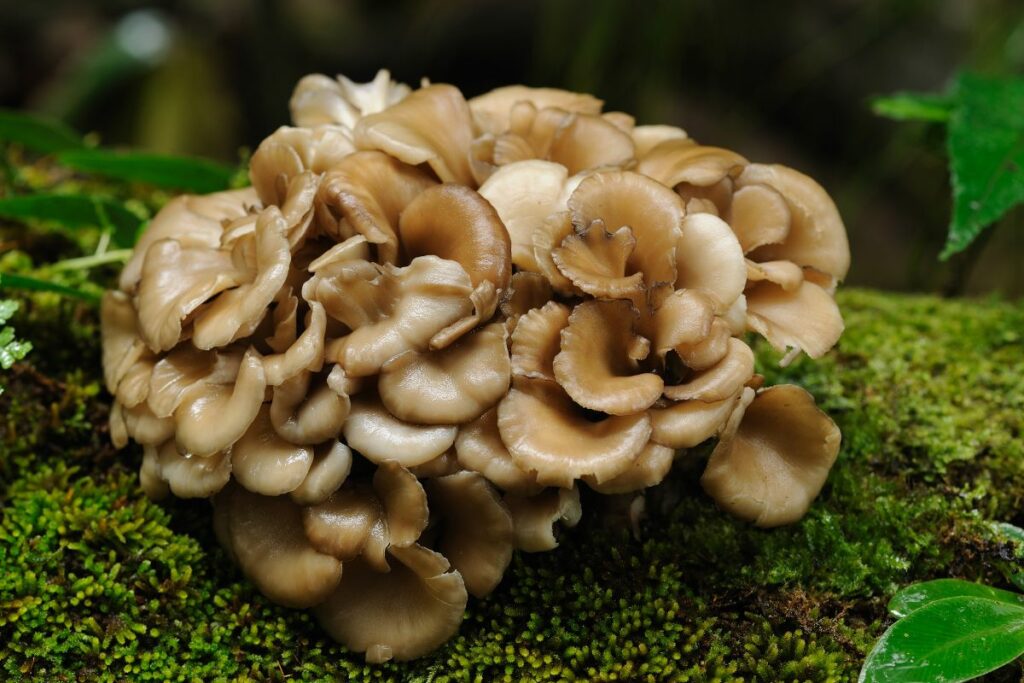
Maitake mushrooms, also known as “Hen of the Woods,” are particularly rich in beta-glucans and antioxidants that help boost the immune system2. These mushrooms have been used in traditional Japanese medicine for centuries and are currently being studied for their potential cancer-fighting properties and their ability to regulate blood sugar levels.
Reishi Mushrooms

Reishi mushrooms have been highly valued in traditional Chinese medicine for promoting longevity and overall health. They contain triterpenoids, polysaccharides, and peptidoglycans, which have been shown to possess immunomodulatory, antitumor, and anti-inflammatory properties3. Reishi mushrooms are also believed to help alleviate stress and improve sleep quality.
Oyster Mushrooms
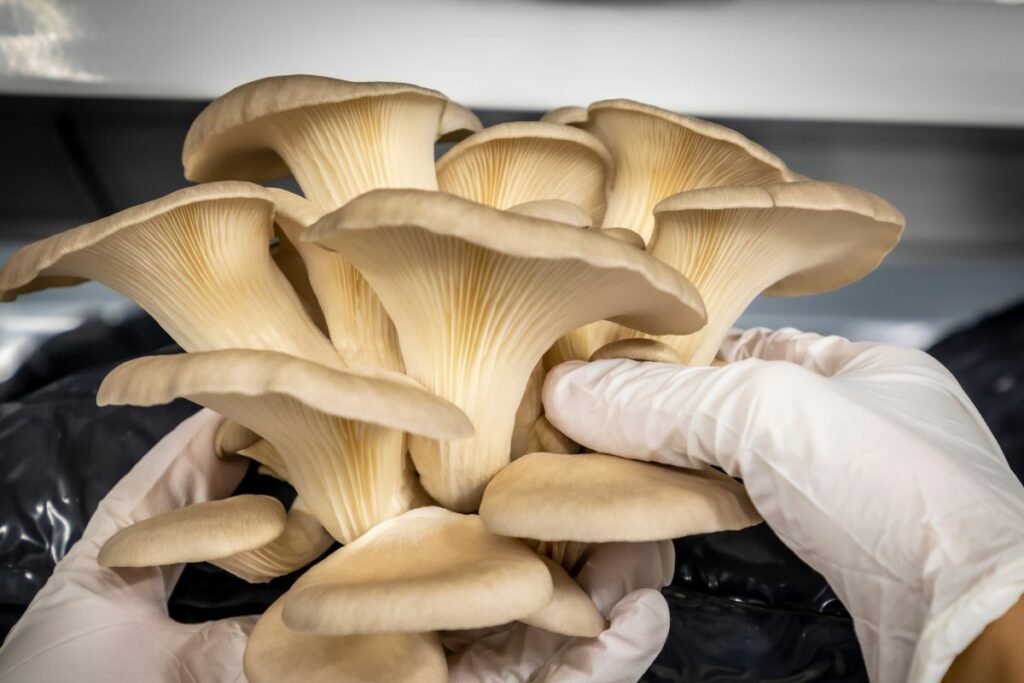
Oyster mushrooms are popular for their delicate flavor and tender texture. They are a good source of vital nutrients such as B vitamins, iron, and fiber. Research has shown that oyster mushrooms may reduce cholesterol levels, as well as exhibit antibacterial and antiviral activities4.
Portobello Mushrooms
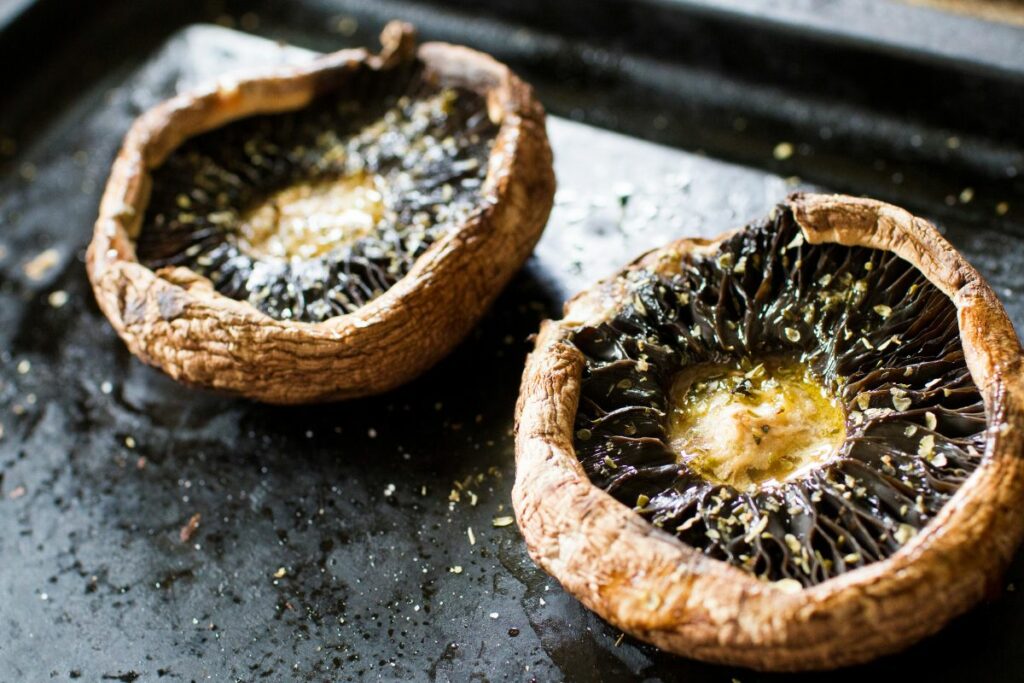
Portobello mushrooms are large, meaty mushrooms often used as a meat substitute in vegetarian and vegan diets. They are high in fiber, low in calories, and contain important nutrients such as potassium, phosphorus, copper, and selenium. Portobello mushrooms are also an excellent source of conjugated linoleic acid5 which has potential anti-cancer properties.
Button Mushrooms
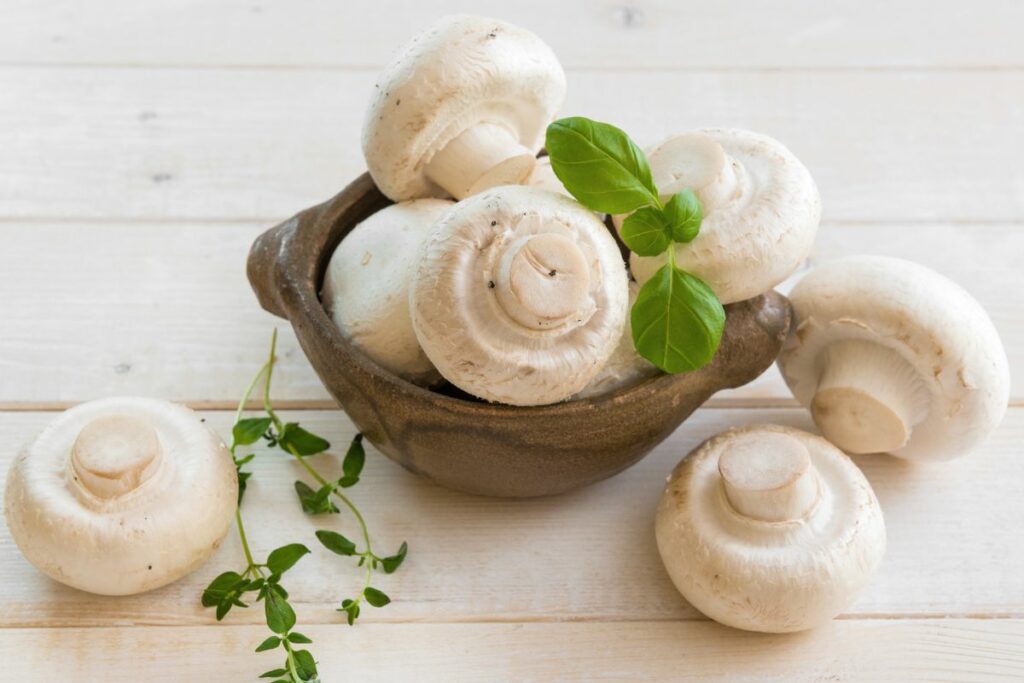
Button mushrooms, or white mushrooms, are the most common type of edible mushroom. They are rich in selenium, potassium, niacin, and vitamin D. Several studies have indicated that button mushrooms can support immune health and exhibit anticancer properties due to the presence of β-glucans, ergosterol, and other compounds6.
Chanterelle Mushrooms
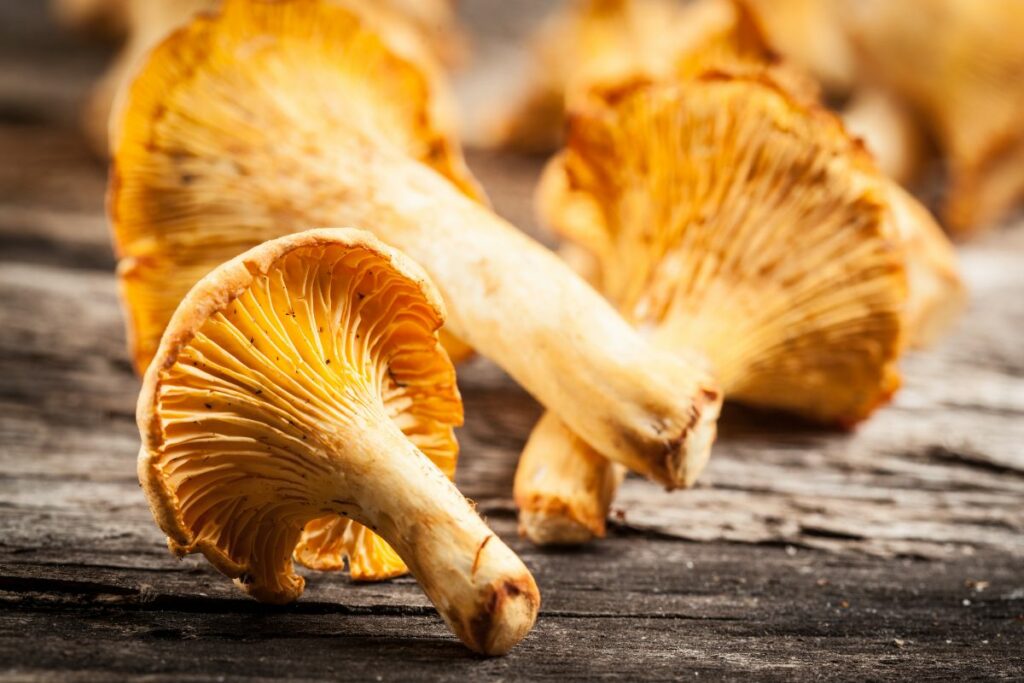
Chanterelle mushrooms are golden, fragrant, and highly prized for their culinary use. These mushrooms are known to be rich in antioxidants, vitamins, and minerals such as iron, potassium, and manganese. Preliminary studies suggest that chanterelle mushrooms have potential anti-inflammatory and anti-cancer properties7.
Chaga Mushrooms

Chaga mushrooms are found growing on birch trees and are traditionally used in Siberian, Russian, and northern European folk medicine. Chaga contains polysaccharides, triterpenoids, and other compounds that may enhance immune health, fight inflammation, and protect against oxidative stress8.
Morel Mushrooms
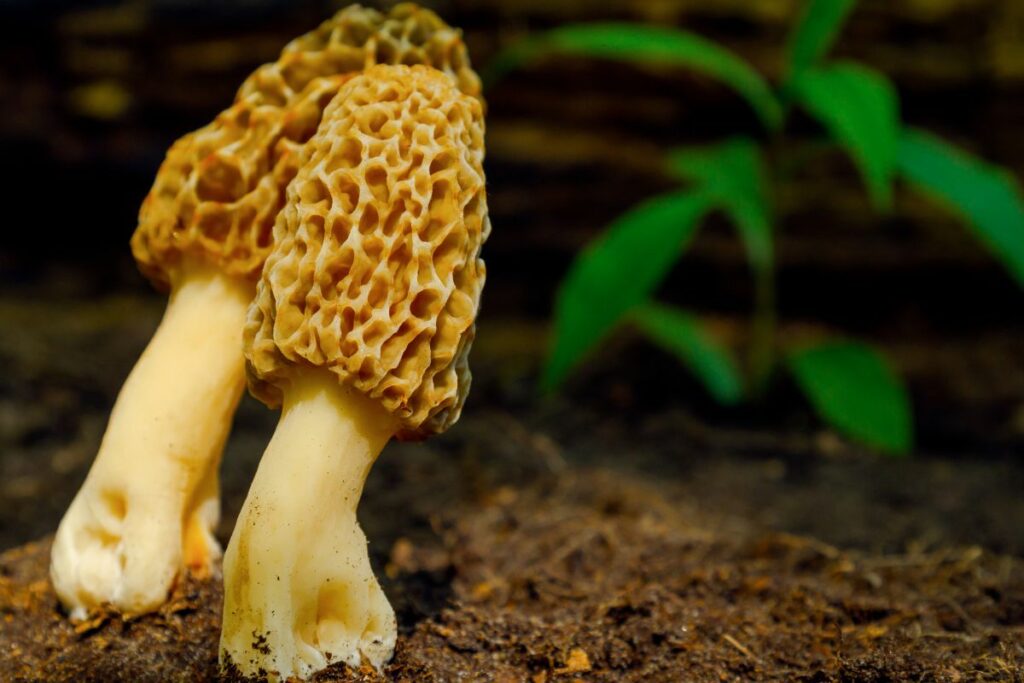
Morel mushrooms are a culinary delicacy known for their unique honeycomb appearance and flavorful taste. They are a good source of essential nutrients and have been suggested to exhibit antioxidant and anticancer properties. However, more research is needed to confirm these claims9.
Crimini Mushrooms
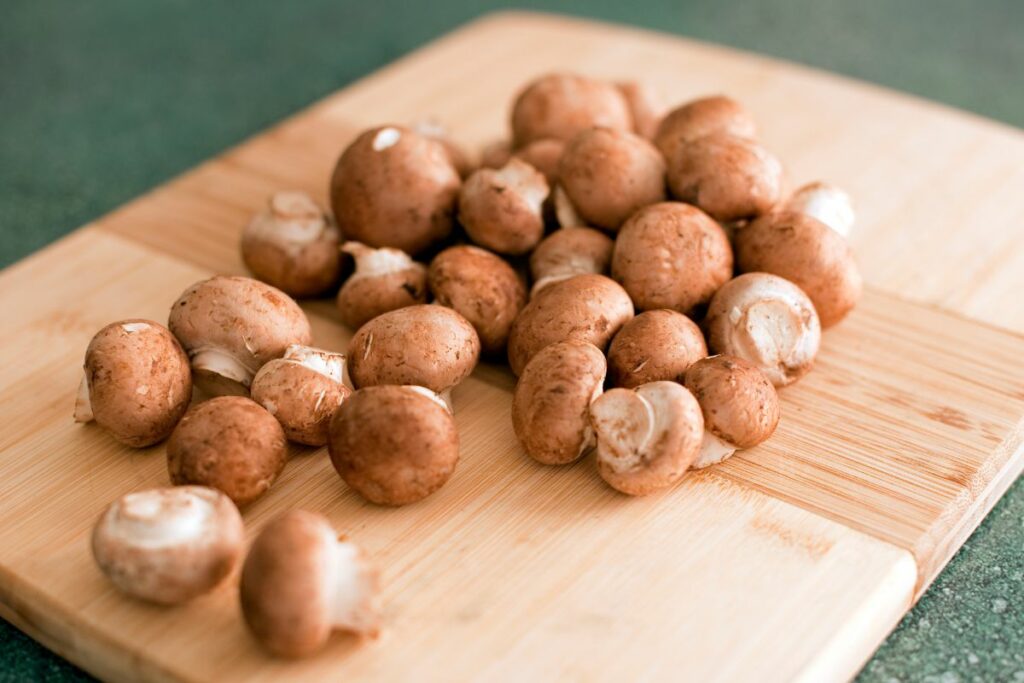
Crimini mushrooms, also known as brown mushrooms, are closely related to the white button mushrooms but have a deeper, earthier flavor. They contain essential nutrients and antioxidants, which may support heart health, immune function, and exhibit anti-cancer effects10.
Turkey Tail Mushrooms

Turkey tail mushrooms have been used in traditional Chinese medicine for centuries due to their immune-boosting properties. They contain various polysaccharides, such as PSK and PSP, which have exhibited immunomodulatory and anti-cancer activities11.
Cordyceps Mushrooms

Cordyceps mushrooms are a revered traditional remedy in Chinese medicine for promoting vitality and improving energy levels. They have been studied for their potential to increase athletic performance, boost immune health, and regulate blood sugar levels due to the presence of beneficial active compounds such as cordycepin[^12^].
Incorporating Mushrooms into Your Diet
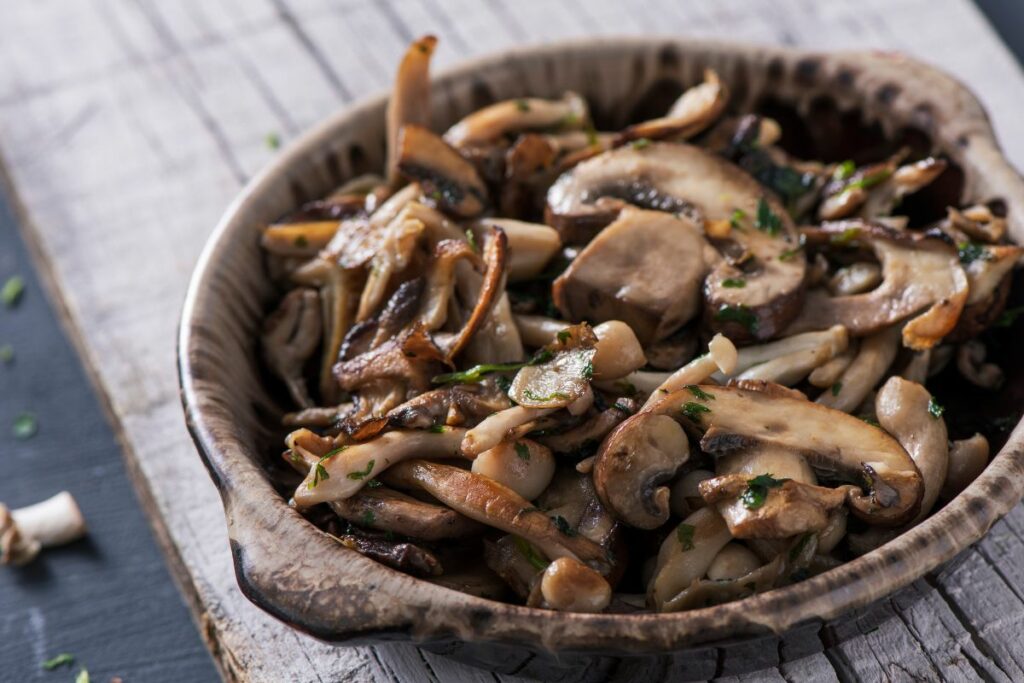
Mushrooms are not only versatile in various dishes but also offer many health benefits. This section will provide you with guidance on choosing, storing, and cooking with mushrooms, as well as adapting them to different dietary restrictions.
Choosing and Storing Mushrooms
When selecting mushrooms at the grocery store, look for clean, firm, and well-shaped varieties. The most common types of mushrooms include white button, cremini, and shiitake. Edible mushrooms should have no signs of discoloration, damage, or mold.
To maintain freshness, store mushrooms in a paper bag or a container with a perforated lid in the refrigerator. Avoid using plastic bags, as they tend to trap moisture, which can cause your mushrooms to spoil more quickly.
Cooking with Mushrooms
There are countless ways to incorporate mushrooms into your dishes, suitable for any meal of the day. You can enjoy mushrooms raw in a salad or cooked in various methods such as grilling, sautéing, or roasting with a drizzle of olive oil.
Mushrooms can be combined with other vegetables to create flavorsome and nutritious soups. They also serve as an excellent meat substitute in some recipes, providing extra protein and a richer umami taste to your meals.
Simple cooking tips:
- Grilling: Marinate mushrooms in your favorite sauce and grill them over medium heat for 5-7 minutes on each side until tender.
- Sautéing: Heat olive oil in a pan over medium heat, add sliced mushrooms, and cook for 5-7 minutes until they release their moisture and become tender.
- Roasting: Toss mushrooms in olive oil, season with herbs and spices, then spread them on a baking sheet and roast at 400°F (200°C) for about 20 minutes, turning once halfway through.
Mushrooms in Dietary Restrictions
For those with specific dietary needs, mushrooms can be a beneficial and adaptable addition to your diet. Since they are low in calories and fat, they are suitable for weight management plans. Additionally, the high fiber and protein content in mushrooms make them a valuable plant-based protein source for vegetarians and vegans.
Additionally, various medicinal mushrooms can help in managing diabetes as they are low in fats and cholesterol.
Ultimately, mushrooms are a versatile and nutrient-rich ingredient that can be easily incorporated into various dishes, making them an excellent choice for any diet or lifestyle.
Cautions and Considerations
While mushrooms can offer various health benefits, it is essential to be aware of potential risks and issues associated with their consumption. Some mushrooms can be poisonous, and even those with medicinal properties can cause allergies or sensitivities in certain individuals.
- Poisonous mushrooms: It is crucial to exercise caution when foraging for or consuming wild mushrooms, as some species can be highly toxic. Ingesting poisonous mushrooms can lead to severe health symptoms, or in extreme cases, even death. Always ensure that the mushrooms being consumed are from a reputable source, and be able to correctly identify edible varieties.
- Allergies: Allergic reactions to mushrooms, while rare, can occur in some individuals. These reactions can range from mild symptoms like itching, swelling of the lips, and skin rashes to more severe symptoms, such as difficulty breathing or anaphylaxis. It is essential to be aware of personal allergies and consult a healthcare professional if experiencing any symptoms after consuming mushrooms.
- Sensitivities: Some individuals may experience digestive issues such as bloating, gas, and stomach discomfort when consuming mushrooms. This can be due to the high-fiber content or specific compounds found within the mushrooms themselves. Moreover, the type and preparation method of mushrooms can also play a role in their digestibility. It is recommended to start with small portions and observe individual reactions over time.
In summary, while mushrooms can provide numerous health benefits, it is crucial to approach their consumption with caution. By being mindful of potential risks, consumers can maximize the positive effects these fungi have to offer.
Frequently Asked Questions
Which mushrooms promote brain health?
Lion’s Mane mushrooms are known to promote brain health and cognitive function. They contain compounds called hericenones and erinacines, which can stimulate the growth of brain cells and help protect against age-related cognitive decline (source).
What types of mushrooms support energy and focus?
Cordyceps mushrooms are believed to support energy and focus. These fungi have been used in traditional Chinese medicine and are said to help increase stamina and endurance. They may also boost ATP production, which is the primary source of energy in cells, and that can increase energy and focus levels (source).
Which mushrooms have the strongest medicinal properties?
Reishi mushrooms are considered one of the strongest medicinal mushrooms due to their potential to support immunity, combat fatigue, and promote overall wellness. They contain compounds like triterpenoids and polysaccharides, which have been studied for their potential anti-inflammatory and immune-boosting properties.
What are the best mushrooms for heart health and inflammation?
Shiitake mushrooms may be particularly beneficial for heart health and inflammation. They contain beta-glucans, which can help lower cholesterol levels, and eritadenine, a compound that may reduce blood pressure. Additionally, the antioxidant content of shiitake mushrooms can help combat inflammation and promote overall cardiovascular health (source).
Which mushroom supplements aid in weight loss?
Maitake mushrooms have been associated with potential weight loss benefits due to their high fiber content and low calorie count. They may help regulate glucose levels and improve metabolism, two factors that can contribute to weight management. While there is no magic supplement for weight loss, incorporating maitake mushrooms into a balanced diet and exercise routine may offer some benefits (source).
Which mushroom has the highest antioxidant content?
Chaga mushroom gummies are known for their high antioxidant content, which can help protect cells from damage caused by free radicals. The antioxidants found in Chaga mushrooms, like superoxide dismutase and betulinic acid, may contribute to a variety of health benefits, including immunity support and potentially slowing down the aging process (source).
Footnotes
- Nutritional and medicinal importance of mushrooms ↩ ↩2
- Mushrooms as source of dietary fiber and its medicinal value: A review article ↩ ↩2
- Effect of different cooking methods on nutritional value and antioxidant activity of cultivated mushrooms ↩ ↩2
- https://www.researchgate.net/profile/Shalinee-Prasad/publication/284433964_Medicinal_Mushrooms_as_a_Source_of_Novel_Functional_Food/links/569e66ef08ae21a56424a536/Medicinal-Mushrooms-as-a-Source-of-Novel-Functional-Food.pdf ↩
- https://www.dl.begellhouse.com/journals/708ae68d64b17c52,28491335273756b2,5b2516df6bbf4bbd.html ↩
- https://academic.oup.com/jn/article-abstract/144/7/1128S/4569770 ↩
- https://books.google.com/books?hl=en&lr=&id=M9Mz99pAdXMC&oi=fnd&pg=PR13&dq=Types+of+Healthy+Mushrooms+best+mushrooms+for+health+&ots=WRiWQ8w47b&sig=uQ7yZJi9f-OblRL22XZ0G9xcNgc ↩
- https://www.dl.begellhouse.com/journals/708ae68d64b17c52,2c6ab3993645ca9e,17f638fd2f1bbec0.html ↩
- https://www.researchgate.net/profile/Shalinee-Prasad/publication/284433964_Medicinal_Mushrooms_as_a_Source_of_Novel_Functional_Food/links/569e66ef08ae21a56424a536/Medicinal-Mushrooms-as-a-Source-of-Novel-Functional-Food.pdf ↩
- https://www.dl.begellhouse.com/journals/708ae68d64b17c52,28491335273756b2,5b2516df6bbf4bbd.html ↩
- https://www.dl.begellhouse.com/journals/708ae68d64b17c52,2c6ab3993645ca9e,17f638fd2f1bbec0.html [^12 ↩



